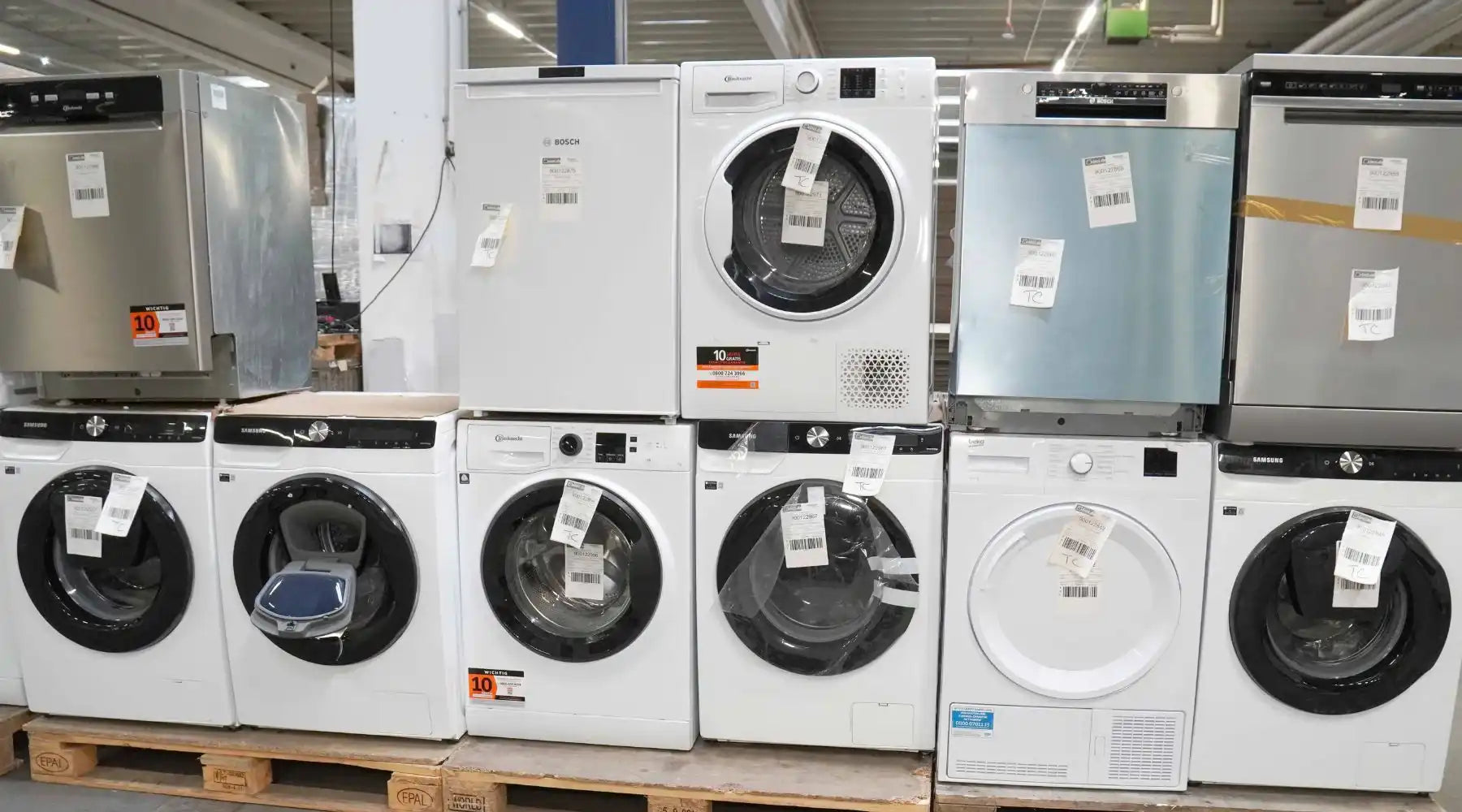
- by Maike Fürsattel
Buying returned goods - more profit, less risk for clever returns retailers
- by Maike Fürsattel
Buy returned goods is for many returns dealers an efficient strategy to acquire low-cost goods with good potential for resale. Compared to regular new goods B-goods offers decisive advantages - both economically and ecologically. In this article, you will learn how the purchase of returned goods in a targeted manner, what to look out for and how elvinci supports you as a strong partner.
Buying returned goods means getting access to products that are far below the original price. This means that you reduce your purchasing costs and increase your profit margin at the same time. Consequently, this purchasing strategy is the basis of a successful business model for many returns retailers.
Typical price advantages result:
through returns from online stores
for minor transport damage
for exhibition goods
for unpacked or newly packed B-goods
These items are usually technically flawless, but can no longer be classified as new. As a result, they can be offered at particularly low prices. This results in high margins, particularly in the areas of household appliances, consumer electronics and white goods.
For returns retailerswho need to react flexibly to market developments, the variety of goods available is a great advantage. The assortment ranges from technology and furniture to small appliances. In other words, suitable packages can be put together for almost any target group.
In addition, shopping in elvinci's B2B online store enables individual selection and configuration. The following functions provide support:
Product search by category, condition and price
Clear presentation with pictures and condition description
Package processing before ordering (add, remove, exchange)
These functions simplify the purchasing process considerably. This gives retailers more time for their core business.
The purchase and sale of B-goods is not only economically sensible, but also ecologically valuable. This is because the reuse of returned goods the service life of products can be extended. At the same time, electronic waste is avoided - a clear plus point for the company's image.
In addition, professional providers such as elvinci pay attention to clear condition categories, transparent defect information and comprehensible pricing logic. This means that customers can make decisions based on valid data and customize their packages accordingly. This not only strengthens trust, but also reduces complaints and returns.
Structured purchasing of returns is worthwhile if the following aspects are taken into account:
TransparencyCondition, defects, prices clearly documented
Quality control: internal inspection processes for consistent standards
Logistics: fast shipping, secure packaging
Service: personal support, predictable delivery intervals
For small and medium-sized retailers in particular, these criteria are crucial in order to be able to offer the best possible service with a limited budget. Returned goodsprofessionally and with low risk.
The elvinci B2B store offers special services for Retailer returns a technical infrastructure that makes purchasing scalable and transparent. In contrast to traditional returns retailers, elvinci relies on a digital points system that allows each individual unit to be evaluated.
This brings advantages such as:
daily updated package offers
Comprehensible point logic for pricing
Structured checkout process
direct contact persons
In addition, elvinci regularly offers new product packages so that repeat customers can make targeted purchases without the need for extensive research.
What are the biggest advantages of buying returned goods for returns retailers? The biggest advantages are cost savings, product selection and sustainability. Returns retailers benefit from low purchase prices, a wide range of products and the opportunity to act in an environmentally conscious manner. In addition, the high availability of goods enables quick reactions to market changes.
In principle, there can be fluctuations in quality. Returns retailers should therefore only buy from suppliers who offer transparent information on the condition of the goods and comprehensible classifications. However, the risk can be greatly reduced with precise photos and descriptions of defects.
Experience, transparency and service are important. Providers such as elvinci combine all of this with a digital B2B store that efficiently maps the entire purchasing process.
A-goods: The comprehensive guide for B2B retailers
Buying returns - The ultimate guide 2026
Share:
Buying returned goods - opportunities for retailers and online stores
Returning B-goods - clever use of growth potential for retailers